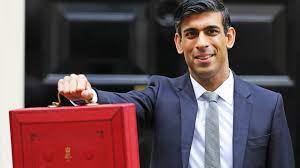

The new pressure on Rishi Sunak comes as six former Secretaries of State for Work and Pensions write to him demanding that the £20-a-week uplift to Universal Credit – introduced as part of emergency spending during the pandemic – be put on a permanent footing.
Research from the think-tanks accompanying the letter calculates that the £20 uplift – a temporary measure due to end in September – has spared hundreds of thousands of people from destitution.
Although the number of people claiming benefits has risen from 3 million to 6 million during Covid-19, the Legatum Institute estimates Universal Credit has saved a further 650,000 people from falling into poverty over this timeframe.
The Legatum Institute’s report, Nowcasting Poverty – Quarter 1, 2021, notes that while 320,000 more people are in poverty due to Covid-19, this is far less than the potential 970,000 who would have been affected without the uplift in Universal Credit and Working Tax Credit.
Universal Credit, which was implemented to simplify the previous benefits system, has helped millions of Britain’s poorest and most vulnerable.
Keeping the uplift is set to cost the Government between £4.4 billion and £6.6billion annually, according to respective estimates from the Office for Budget Responsibility and HM Treasury.
A parallel paper from the Centre for Social Justice, Universal Credit Update: pandemic, uplift, and Universal Support, explains how the system is well-adjusted to deal with the economic affects of the pandemic, but requires further investment and support from the Government.
It points out that the annual £5 billion extra required pales in comparison to the £60 billion spent on job furlough, which has a potential fraud/error margin of 5-10 per cent according to the HMRC.
In a rare move, previous Secretaries of State for Welfare have joined forces to ensure the Chancellor does not scrap the vital £20 uplift.
The six former welfare chiefs who signed the letter were Stephen Crabb, Damian Green, David Gauke, Esther McVey, Amber Rudd and Sir Iain Duncan Smith. It declares:
“As former Secretaries of State for Work and Pensions, we are writing with one voice to support those individuals and families that are struggling most in the wake of the pandemic, and to ask that the current funding envelope for individuals on Universal Credit be kept at the current level.
“The Government’s increase in the payment of Universal Credit (“the £20 uplift”) has been vital for protecting the incomes of many families and providing support to the economy.
“We congratulate the team at the DWP for the way Universal Credit has performed to support a further 3 million people during this time.
“Work remains the best way out of poverty for those who can work, but we want to make sure that those who cannot work are supported with dignity.”
Former Tory leader Sir Iain Duncan Smith, who founded the CSJ, said:
“One of the greatest, but unremarked, successes of the Government’s response to Covid has been the benefit system. Universal Credit has held up well as a system for distributing money to those who need it, and the extra £20 added to has been essential in allowing people to live with dignity.
“Today all six former Conservative Secretaries of State for Work and Pensions have written with one voice to urge the Chancellor to protect the extra money he has invested in Universal Credit.
“As such, this investment should be at the heart of what makes us Conservatives: delivering the policies needed to provide businesses and people across the UK with opportunities to prosper, whilst simultaneously providing support to those at risk of being left behind.
“A failure to act would mean not grasping this opportunity to invest in a future with more work and less poverty and would damage living standards, health and opportunities for some of the families that need our support most as we emerge from the pandemic.”
Baroness Philippa Stroud, CEO of the Legatum Institute said:
“Our analysis shows that the Government’s investment in Universal Credit has provided vital support to protect many families from the economic fallout of the pandemic. Without this, many more families would be in poverty than is currently the case.
“To ensure this continues as we begin to adapt to life after, or living with, Covid-19, there is a clear need for this investment to remain in place as part of a comprehensive anti-poverty strategy. This must be placed at the heart of the UK’s Covid-recovery response.”
Andy Cook, Chief Executive of the CSJ said:
“Over 3 million more people are now reliant on UC than before the pandemic, many with pre-existing financial commitments. The vast majority of the increase in welfare costs to the DWP has not come from the uplift, but from the increase in the caseload.
“The CSJ therefore supports making the uplift permanent, and backs further investment in UC.
“We also recognise that, aside from the economic impact of the pandemic, the root causes of poverty are often social, and those facing the most complex obstacles to employment would be helped most through rolling out Universal Support, which our paper describes in depth.”
Help keep news FREE for our readers
Supporting your local community newspaper/online news outlet is crucial now more than ever. If you believe in independent journalism, then consider making a valuable contribution by making a one-time or monthly donation. We operate in rural areas where providing unbiased news can be challenging. Read More About Supporting The West Wales Chronicle























